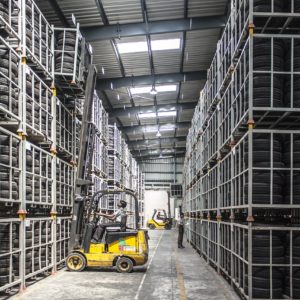Build your future success with a Crane Training course!
The CSCS card is the most important qualification anyone in the construction industry can have. Once you have gained one, there are thousands of jobs open to you. One of the most lucrative is working as a crane operator. Taking the time to train as one will open many doors to a successful future career, either self-employed or as a part of a construction company.
With courses available across Ireland, in an industry-standard format that is also accepted over in the UK. Qualifications can take as little as a single day to earn, meaning that it can fit into even the busiest of schedules.
What will I learn?
The exact details of what you will learn depend entirely on the type of crane training course that you undertake. There are a variety of options available, which include:
- Tower Crane training. This type of training is suitable for the operation of large cranes on major construction sites.
- Remote Controlled Self Erecting Crane training. For operators of short-term cranes, which are often easily portable, special training must be undertaken. Courses relevant to these types of crane focus on setting up the crane, and the proper care of the plant equipment.
- Gantry Crane training. Gantry cranes are usually found in shipyards and at docks, and deal with enormous amounts of weight. If you live in a port city, Gantry crane training can help you get a secure job in a vital industry.
- Lorry Mounted Crane training. As the name suggests, this provides training for ultra- portable truck mounted cranes that can be used for rescue and pickup operations
All courses on offer are CSCS accredited, which means that crane operators will be able to demonstrate their competence and knowledge of safe worksite operations. Some courses require students to have a minimum experience level in their desired field before being accepted, so make sure to check the requirements of the course before you apply.
Learning how to handle your load is a central tenet of crane operation. As much as learning about proper usage and maintenance of equipment, controlling difficult loads in high wind and variable conditions is vital. As well as this, other aspects covered by a course are likely to be:
- The duties of an on-site crane operator
- The responsibilities of an operator while at work, to themselves and their co- workers
- Pre-shift inspection routines
- Crane and machinery maintenance. While operators are not expected to be able to perform complex maintenance tasks themselves, learning to maintain basic elements of their machinery is important on a day-to- day basis and to ensure as little time as possible is lost while on-site.
- Potential operating hazards. From temperature to wind to human variables, learning to spot the potential problems that can occur while working should be considered a mandatory part of the training programme.
- Risk assessment. In a dangerous working environment, such as a construction site, learning to assess potential hazards and avoid them before they can occur by using a proper planning system is vital.
- Personal Protective Equipment and its uses.
- Loading and unloading of different types of load. This includes the use of additional lifting machinery, such as chains and slings.
- Understanding and correct usage of hand signals. As machinery and equipment can often prove incredibly loud, learning the correct system of hand signals while at work is an essential part of the training course, allowing CSCS qualified operators to
work in as safe an environment as possible.
Once you have completed all aspects of training to the satisfaction of examiners, graduates will be awarded their CSCS card and will be qualified to work on site.












Hi, I am enquiring about the crane training courses. I am looking for a change in career and this is something I would enjoy. I do not work in this industry.
What are the costs of the different crane training courses?
and what kind of income could I expect to earn?
Are there many jobs in Kildare/Dublin region ?
It would be great to understand what area/crane type would be the best option for me.
Thanks in advance.
Sean Kelly
I hold a Tower and Crawler crane licence. It has been a while since I operated a Tower crane is there refresher courses available.
Also have operated mobile cranes but do not have a mobile licence can I take a test to get one. I have been operating cranes and excavators for over 30 years.
I also hold a 360% excavators licence, and have references.
Michael Moran.